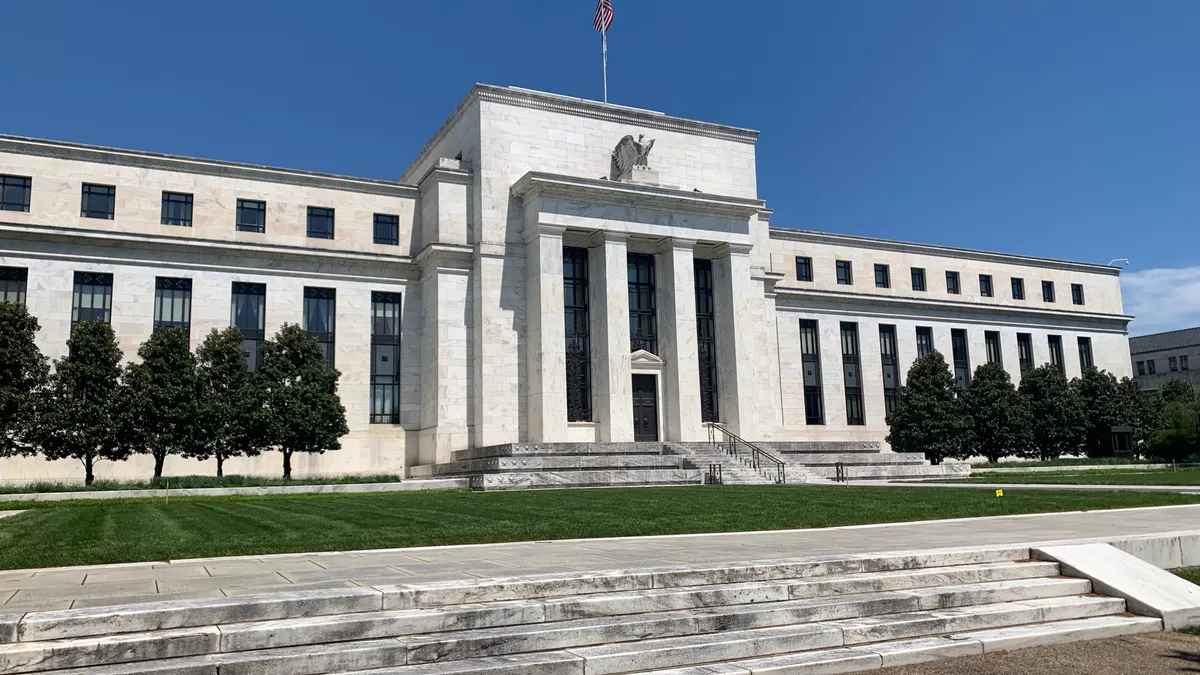Sen. Tim Scott, R-SC, the Senate Banking Committee’s ranking member, urged the Federal Reserve in a letter Friday to be mindful in reviewing bank capital requirements.
The letter, co-signed by nine other senators, reminded Fed Chair Jerome Powell that any such review should be tailored according to a bank’s capital structure, riskiness, complexity, financial activities and risk-related factors. The lawmakers emphasized “risk-related.”
At issue is concern over what the central bank’s vice chair for supervision, Michael Barr, may have meant when he announced a “holistic” review of capital requirements in December.
“Mr. Barr should adhere to the letter and spirit of the tailoring provisions as enacted by Congress,” the senators said. “Reports of regulators’ efforts to unwind those tailoring reforms are concerning and do not comply with the law.”
Barr did not provide a timeline by which the central bank would complete the review, but said he would give more details this year.
“Larger, more complex banks pose the greatest risk and impose greater costs on society when they fail,” Barr said. “Higher capital requirements help to ensure that larger, more complex banks internalize this greater risk and counterbalance the greater costs to society by making these firms more resilient.”
Bank capital and its quality, the senators wrote Friday, “must continually be evaluated and scrutinized to ensure it is tailored to the risks facing our financial institutions and their activities, thereby protecting the safety and soundness of our banking system.”
“Otherwise, such reviews may unjustly increase capital requirements and have a chilling effect on market making activities and availability of financial services,” they wrote.
Sens. Mike Crapo, R-ID; Mike Rounds, R-SD; Thom Tillis, R-NC; John Kennedy, R-LA; Bill Hagerty, R-TN; Cynthia Lummis, R-WY; Katie Britt, R-AL; Kevin Cramer, R-ND; and Steve Daines, R-MT, signed the letter.
The senators insisted the need to increase capital requirements “appears unfounded” because losses during the COVID-19 pandemic generally did not match provisions banks set aside.
Increasing capital requirements as inflation escalates may have severe consequences for lending, market liquidity and the broader economy, the senators wrote.
Citing research from the Federal Reserve Bank of Philadelphia, the senators said a 1 to 2.5 percentage-point increase in capital requirements could spur a loss of $100 billion in gross domestic product annually.
Additionally, customers could be hurt if banks are forced to “sequester funds” they could have used for other financial services, the senators wrote.
Higher borrowing costs for businesses and families, lower economic growth, and a lack of competitiveness in the U.S. capital markets are some negative impacts of raising capital, the senators said.











